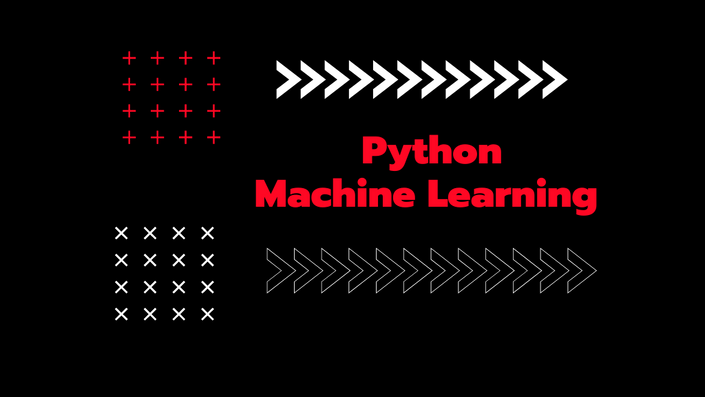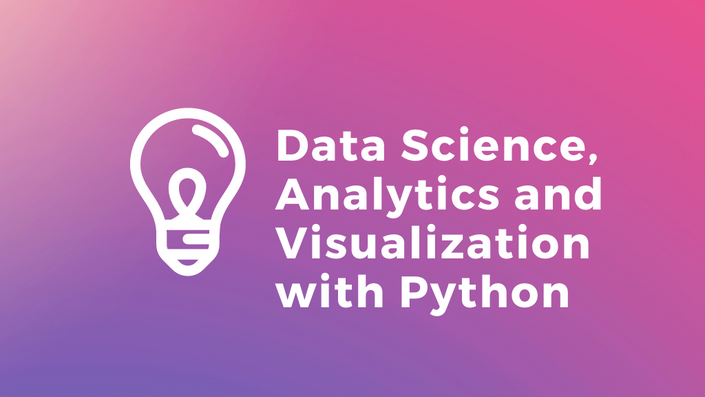Featured Courses
Students who take Python, also register the below courses:
Python is currently the most popular programming language, and it very easy for anyone to learn.
This hands-on self-paced Python programming course shows how to rapidly develop and maintain effective Python programs. The course includes thorough coverage of Python syntax, built in data types and control constructs. The course takes a practical approach to creating and organizing Python programs using functions, packages, modules.
You will learn how to use Python to create scripts that manipulate data, automate tasks, and perform error handling. You will be able to create Python scripts that are essentials for all system administration jobs.
Right after taking this self-paced course, you can take any of below live courses to take your Python skills to the next level:
- Intro to Machine Learning with Python
- Intro to data science, data analytics and data visualizations with Python
Learning Objectives
In this hands-on self-paced course, you will learn:
- Working with Python's built-in objects
- Reading and writing files
- Creating variables and objects in Python
- Creating structured data with lists, tuples, sets and dictionaries
- Performing conversion operations on numbers
- Using conditional constructs to control flow of execution
- Organizing code with functions and classes
- Using exceptions to gracefully handle errors
Topics and Subtopics
1- Introduction to Python 3
- Origin and Goals of Python
- Overview of Python Features
- Getting and Installing Python
- Accessing Python Documentation: Python Enhancement Proposals (PEP)
- Python's Strengths
- Using Python with Other Programming Languages
2- Using Python
- Executing Python Programs from the Command Line
- Python Command Line Options
- Environment Variables that Influence Python
- Creating Python GUI Applications
- Standalone vs. Web-Enabled Interfaces
- The Python Standard Library
3- Language Fundamentals
- Python's Lexical Analyzer
- Using Whitespace to Structure Programs
- Identifiers and Keywords
- Python's Execution Model
- Naming Objects and Binding
- Python's Data Model
- Immutable and Mutable Objects
- Values
- Types
- Creating and Using Variables
4- Flow Control Constructs
- if/elif/else Statements
- Creating Loops with while and for
- Understanding Iterators
- Returning Values with return Statements
- Loop Modification with break and continue
- Returning Generator Iterators with the yield Statement
- Retrieving Iterators with next()
5- Expressions
- Unary and Binary Arithmetic Operations
- Comparison and Boolean Operations
- Conditional Expressions
- Lambda Expressions
- Order of Operations and Operator Evaluation
- Expression Lists
- Assignment Operations
6- Exception Handling
- Types of Python Exceptions
- Handling Exceptions with try/except/finally
- Triggering Exceptions with raise
- Defining New Exception Types
- Implementing Exception Handling in Functions, Methods and Classes
- Working with the Regular Expression Error Exception
7- Using the String Object
- Using ASCII and Unicode Strings
- Manipulating Strings with String Methods
- Using the format() Function to Format Strings
- Using Escape Sequences
- Working with Raw Strings
8- Organizing Code
- Defining Functions
- Calling Functions
- Creating Anonymous Functions
- Altering Function Functionality with Decorator Functions
- Creating Classes with the class Statement
- Creating Objects as Class Instances
- Using Preexisting Classes as the Basis of a New Class
- Using Modules to Group Related Functions, Classes and Variables
- Locating and Importing Modules
- Using Packages to Group Modules Together
9- Arrays, Collections and Dictionaries
- Sequenced Data Structures
- Arrays
- Collections
- Dictionaries
- Creating and Accessing Lists
- Manipulating Lists
- Creating and Accessing Tuples
- Understanding the Differences Between Lists and Tuples
- Using Dictionaries to Create Data Records
- Manipulating Dictionaries Using Dictionary Methods
- Creating Sets
- Performing Set Operations
- Union
- Intersect
- Difference
- Differences Between Sets and Dictionaries
- Using Generators to Return Iterators
10- Working with Arguments
- Passing Arguments to Functions by Reference and by Value
- Defining Functions with Required Arguments
- Defining Functions with Default Arguments
- Defining Flexible Functions that Take Variable Length Arguments
Project 1- Rolling Dice
Project 2- Reverse String
Project 3- Hangman Game
Project 4- Python Tasks with Loop, Conditional Statements and More
Requirements
None.
Related Courses
Complete Training Bundle
If you are serious about becoming a pro software engineer, you should enroll in our Complete Training Bundle for Software Engineers class, This bundle covers all essential and practical topics related to software design and development. For $290 monthly subscription, you can have access to 300+ hours of hands-on project-based training covering all courses related to software development like Python, Java, Kotlin, C/C++ Go and more. Click here to learn more.
Private Tutoring Classes
To take skills you learn from this course to the next level, taking the Coding Bootcamps school tutoring classes are highly recommended. It is also a great opportunity to discuss your questions and problems related to this course with an experienced instructor:
- Private tutoring sessions for software design and engineering- Weekly and monthly plans
- Python and Python Object-Oriented Programming- Private tutoring sessions
What Is Next?
After finishing this course, you can enroll in any of following classes:
- Learn Python OOP by Examples
- Introduction to Java Programming
- Introduction to C Programming
- Learn C++ Programming by Examples
- Introduction to Go Programming
- Learn Kotlin Programming by Examples
- Introduction to Database Design
- Learn SQL Programming by Examples
- Introduction to Linux OS
Recommended Free Courses
If you are new to the IT or programming, we suggest the following free courses:
Course Curriculum
- What you'll learn in this course (3:15)
- 1- Introduction to Python 3 and Python Installation and Setup (19:41)
- 2- Python Programs, Command lines, Environment Variables and GUI (36:55)
- 3- Python Language Fundamentals-Lexical Analyzer, Execution Model and Data Model (38:32)
- 4- Flow Control Constructs- if/elif/else and Loops (39:00)
- 5- Arithmetic, Boolean Operations & Conditional, Lists, and Lambda Expressions (13:15)
- 6- Exception Handling with try/except/finally & Exception Handling in Functions, Methods and Classes (15:26)
- 7- Using the String Object in Python (12:12)
- 8- Organizing Code with Functions, Classes and Modules (35:46)
- 9- Arrays, Collections and Dictionaries, Sets, Lists, and Tuples in Python (18:24)
- 10- Working with Arguments in Functions in Python (5:45)
- What is next (1:45)

Steven Almeroth- Senior Developer and Web Scraper
Steven is the founder of Prime Site, a small technology company, where he designs, develops and delivers Web-based software systems for small and medium-sized clients. Steven has worked for large corporations like Toshiba and Ernst & Young as well as modern start-ups like Scrapinghub. He has decades of hands-on experience developing with: Java, PHP, Python and JavaScript. He has written bots for Amazon, Facebook, Google and Yelp. In his spare time he rides his bikes with his wife and son, plays guitar and invests in crypto.
Featured Courses
Students who take Python, also register the below courses:


